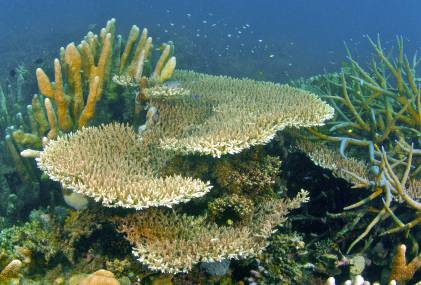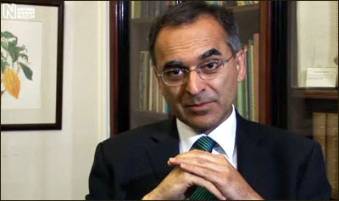
A healthy and diverse hard coral reef before any signs of 'bleaching' from acidification
On the evening of 16 November at the Museum's Annual Science Lecture, to a gathering of about 400 listeners, speaker Pavan Sukhdev explained how the severe threat to the world’s coral reefs – on which half a billion people’s livelihoods depend – could be devastating. 'We tend to forget that carbon emissions are also destroying our tropical coral reefs,' he warned.
Governments worry about conservation measures costing money. But the big threat, Sukhdev argued, is that if we don't preserve nature it will make us poorer rather than richer. He called for a shift in our thinking, advising that we put a financial value on the services that ecosystems provide, rather than taking it for granted that these resources are free.
Sukhdev expressed concerns about the decisions that will be made at next month’s Copenhagen climate summit, if governments set carbon dioxide emissions levels. If these are set too high, then oceans will become too acidic for corals to form and we may lose them entirely.
Susan Vittery, our Nature online website manager was at the lecture and was suitably impressed: 'It was a really informative evening. Pavan Sukhdev is an incredibly charismatic speaker who explained complex economic and environmental issues in a really clear, succinct way that everyone could understand. Fascinating.'
Find out more about this inspiring lecture in our news story and video interview.

Pavan Sukhdev is a senior banker at Deutsche Bank and is leading the UN Environment Programme’s Green Economy initiative which includes The Economics of Ecosystems and Biodiversity TEEB study.
Learn more about the extinction of our coral reefs and how oceans are affected by acidification.
There’s also more on our website about the rich biodiversity of life on our planet and what is being done to protect it in the run-up to the 2010 International Year of Biodiversity.
Watch out for the Museum’s Annual Science Lecture next autumn.


